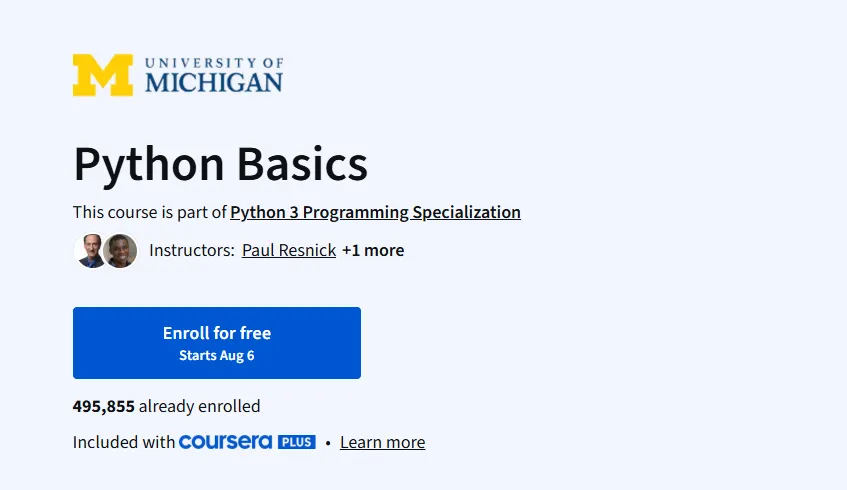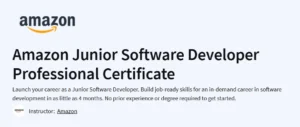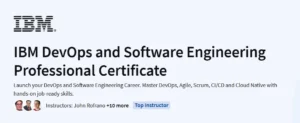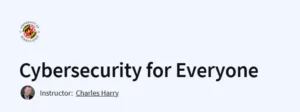What will you learn in Python Basics Course
- Understand Python syntax, variables, and data types.
- Use conditional statements, loops, and functions to write efficient code.
- Work with lists, dictionaries, and tuples for data storage and manipulation.
- Apply Python basics to solve real-world problems.
Program Overview
Module 1: Python Basics
⌛ Duration: 1 week
Topics: Python syntax, expressions, variables, and simple input/output.
Hands-on: Write simple programs to perform calculations and handle user input.
Module 2: Data Structures
⌛ Duration: 1 week
Topics: Lists, tuples, and dictionaries in Python.
Hands-on: Create and manipulate collections to organize and process data.
Module 3: Conditional Execution
⌛ Duration: 1 week
Topics:
if,elif, andelsestatements for decision-making.Hands-on: Implement logic-based programs using conditionals.
Module 4: Loops and Iteration
⌛ Duration: 1 week
Topics:
forloops,whileloops, and iteration over collections.Hands-on: Automate repetitive tasks and process multiple data points efficiently.
Module 5: Functions
⌛ Duration: 1 week
Topics: Defining and calling functions, arguments, and return values.
Hands-on: Write reusable functions to simplify code and avoid redundancy.
Get certificate
Job Outlook
High demand for Python programmers in data analysis, automation, and software development.
Entry-level roles in software engineering, QA, and scripting.
Average salary for Python developers: $70,000–$120,000/year.
Opportunities to freelance in automation and data manipulation tasks.
Specification: Python Basics Course
|
FAQs
- No prior coding experience required; designed for beginners.
- Covers Python syntax, variables, and basic expressions.
- Includes hands-on exercises for writing simple programs.
- Focuses on problem-solving using Python fundamentals.
- Ideal for learners aiming to build a solid foundation in programming.
- Covers lists, tuples, and dictionaries for data storage and manipulation.
- Teaches creating, accessing, and updating collections.
- Includes exercises to practice organizing and processing data.
- Prepares learners for real-world programming tasks.
- Builds foundational knowledge for advanced Python topics.
- Prepares learners for roles in software development, data analysis, and automation.
- Builds problem-solving skills applicable to programming jobs.
- Provides practical coding exercises to strengthen a portfolio.
- Supports further learning in advanced Python and data science courses.
- Enhances employability in entry-level technical positions.
- Duration: 5 weeks (1 week per module).
- Modules include Python basics, data structures, conditionals, loops, and functions.
- Self-paced format allows flexible scheduling.
- Hands-on exercises reinforce learning for each module.
- Suitable for learners seeking structured and beginner-friendly programming training.
- Learn to define and call functions with arguments and return values.
- Practice conditional statements (
if,elif,else) and loops (for,while). - Write reusable code to avoid redundancy and improve efficiency.
- Apply logic to automate repetitive tasks and solve real problems.
- Skills are directly transferable to software development and data manipulation tasks.





